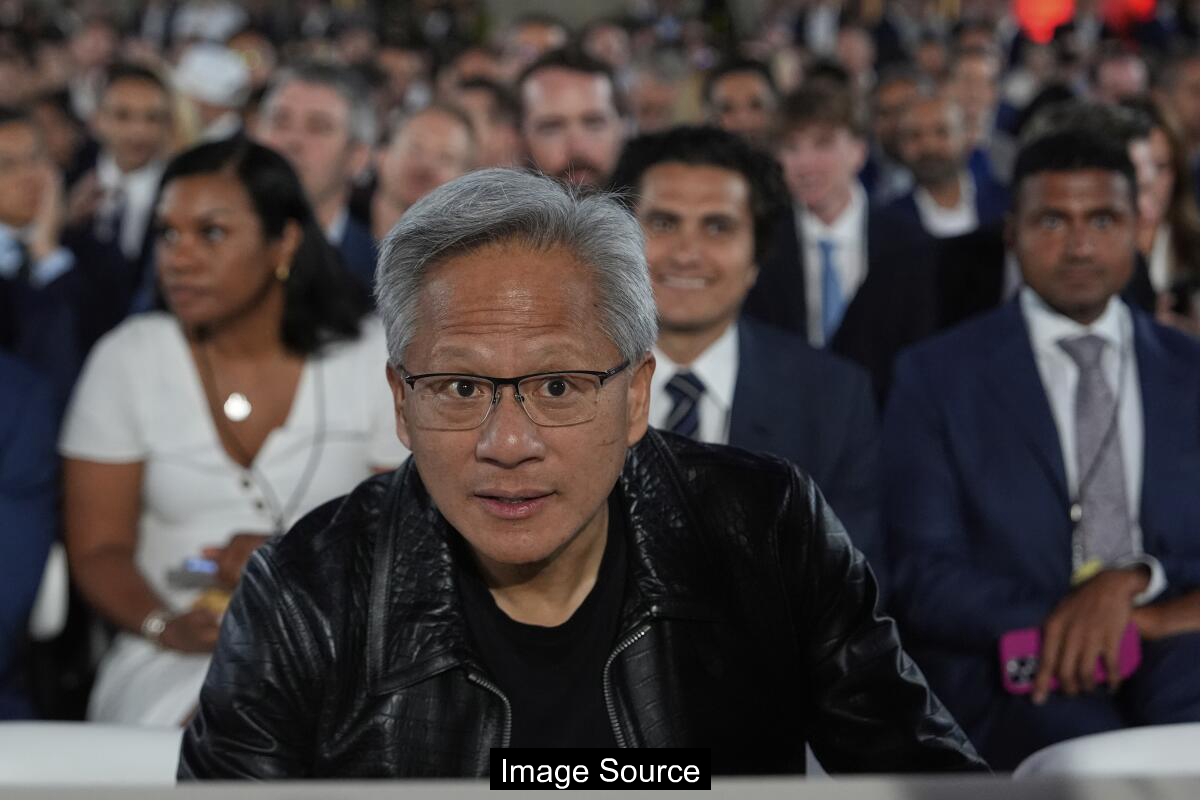Nvidia is navigating complex geopolitical terrain as it pursues regulatory clearance to continue selling advanced semiconductors to Chinese markets. The technology company must secure approval from the Trump administration to proceed with chip sales, which have been increasingly restricted due to national security concerns and ongoing technology tensions between the United States and China.

Nvidia’s Strategic China Chip Negotiations
Nvidia CEO Jensen Huang has initiated discussions about a potential new computer chip designed specifically for China’s AI data centers. The proposed B30A semiconductor, based on Nvidia’s specialized Blackwell technology, represents a strategic move in the complex landscape of international technology trade. This chip would operate at approximately half the speed of Nvidia’s primary B300 chips, which are currently restricted from sale to China.
The proposed chip emerges against a backdrop of ongoing technological and trade tensions between the United States and China. Recent negotiations have seen both nations agreeing to pull back certain non-tariff restrictions, including permits for rare earth magnets and chip design software. These diplomatic efforts signal a nuanced approach to managing technological competition and collaboration.
Huang’s discussions with the Trump administration highlight the delicate balance between commercial interests and national security considerations. The potential sale of the B30A chip underscores the ongoing challenge of maintaining technological leadership while navigating geopolitical constraints.
Regulatory Context and Chip Sales
The recent approval of Nvidia’s H20 chips for sale to China marks a significant development in the semiconductor industry. These sales are subject to a 15% tax to the U.S. government, a condition similarly applied to Advanced Micro Devices (AMD) for its MI380 chips. This taxation approach represents a novel mechanism for managing technology exports.
Huang has been actively working to address potential security concerns surrounding these chip sales. He has consistently maintained that the H20 chips do not pose any security risks to the United States, and has been engaging with both U.S. and Chinese authorities to provide transparency and reassurance.
The regulatory landscape remains complex, with various stakeholders expressing different perspectives on technology transfer. U.S. Commerce Secretary Howard Lutnick has been candid about the strategic approach of selling less advanced chip technologies to China, emphasizing a measured approach to technological exchange.
Security Concerns and Diplomatic Challenges
The Cyberspace Administration of China recently raised concerns about potential security vulnerabilities in Nvidia’s computer chips. Allegations suggested the existence of tracking, location, and remote shutdown technologies, prompting Nvidia to engage in detailed discussions with Chinese authorities.
Huang expressed surprise at these accusations and committed to providing comprehensive documentation and explanations. The ongoing dialogue represents a critical aspect of maintaining international technological trust and addressing potential security apprehensions.
These security discussions reflect the broader geopolitical tensions surrounding advanced technology transfer. Both the United States and China are navigating a complex landscape of technological competition, national security, and economic interests.
Technology and National Strategy
China’s ruling Communist Party has established technological self-reliance as a strategic priority. Despite this ambition, the country continues to rely significantly on foreign semiconductor expertise for its technological production.
The semiconductor industry represents a critical battleground in international technological competition. Advanced chips are not merely commercial products but strategic assets with potential implications for national security, artificial intelligence development, and economic competitiveness.
Nvidia’s negotiations demonstrate the intricate dance of technological diplomacy, where commercial interests must be carefully balanced with national strategic considerations. The company’s approach reflects a nuanced understanding of the global technological ecosystem.
Chip Export FAQ
Q1. Why are Nvidia’s chip sales to China significant?
A1. These sales represent a complex negotiation between technological innovation, trade restrictions, and national security considerations, highlighting the strategic importance of semiconductor technologies.
Q2. How do the proposed chip sales impact U.S.-China technological relations?
A2. The sales demonstrate a carefully managed approach to technology transfer, with specific restrictions and taxation mechanisms designed to protect U.S. technological leadership while maintaining some level of international technological exchange.
Strategic Summary
Nvidia’s ongoing negotiations with U.S. and Chinese authorities illustrate the complex global landscape of technological trade. The proposed B30A chip and the recent H20 chip sales represent strategic maneuvers in an increasingly intricate international technology ecosystem.
The semiconductor industry continues to be a critical arena for technological and geopolitical competition. Companies like Nvidia must navigate challenging regulatory environments, balancing commercial interests with national security considerations.
As technological capabilities continue to evolve, the approach to international technology transfer will likely become increasingly sophisticated, requiring nuanced diplomatic and commercial strategies.
Source: latimes.com